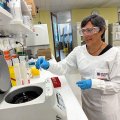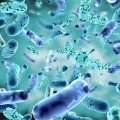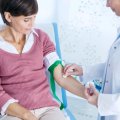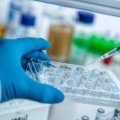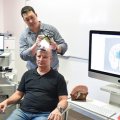Kathy Hirschfeld was emotionally moved when she walked into UQ’s Senate chamber for the first time this year as a newly appointed Senator.
Seeing the pantheon of former chancellors’ portraits gazing across the hallowed room, Ms Hirschfeld’s eyes were drawn to one: that of her grandfather Otto Hirschfeld, who sat on the Senate from 1953 to 1957.
“I suddenly felt really proud to be there,” said Ms Hirschfeld, whose appointment further entwined the century-old links between the university and her family.
Otto’s father Eugen Hirschfeld served on the University’s first Senate, from 1910 to 1914, making Ms Hirschfeld the fourth generation of her family to hold office at UQ .
Ms Hirschfeld’s father Keith gained his UQ medical degree during the time his father Otto was chancellor. Keith went on to teach UQ students at Royal Brisbane and Princess Alexandra hospitals, and sat on the Medical Faculty’s board and curriculum committee.
Otto’s name is well known at UQ: the Anatomy building (just below Chancellors Place) bears his name.
Kathy Hirschfeld gained her chemical engineering degree from UQ in 1982 and has since worked around the world, including the last two decades with multinational oil company BP.
For the past four years, she was managing director of Brisbane’s Bulwer Island refinery - one of only seven oil refineries in Australia and two in Queensland.
She has now left BP, and plans a six-month break before starting a new career phase as a professional director and executive mentor, building on her extensive experience as a company director in Australia and Europe. She currently sits on the board of New Zealand Refining Company as BP’s nominee director.
Ms Hirschfeld is keen to work in areas that will boost the number of women in executive areas generally. She knows discrimination first hand, after having trouble getting into the oil business when she first left uni.
One Queensland employer told her: “You’re just the sort of bloke we’re looking for. But I can’t hire you – you’re a woman!”
She had to leave Queensland to work in her field, and over the next 23 years she worked in Sydney, Melbourne, Perth, the UK and Turkey. On returning to Brisbane in 2005, Ms Hirschfeld quickly re-connected with her alma mater, partly through already-established BP – UQ links.
She was surprised to discover many Brisbanites knew of the Caltex refinery at Lytton, but were unaware of BP’s similar-sized plant at Pinkenba. So she set out to boost BP’s profile among future and present engineers.
“I think we’ve done that,” she said. “UQ and BP collaborate on a number of research projects and we have certainly strengthened ties between the two organisations in the past few years.”
Ms Hirschfeld was one of two women from 22 students in her 1978 first-year chemical engineering class. Numbers of female students in traditionally male areas had improved, she said, but they were still too low.
“Even at 20 per cent, women are still quite marginalised,” she said.
Ms Hirschfeld said she had happy memories of her time as a student, but remembers a lot of hard work.
Alongside her impressive career, Ms Hirschfeld spent 20 years in the Army Reserve, where she had extensive training in leadership and management.
She is keen to use this training to help other women move through executive ranks, and to promote the redesign of job descriptions and workplaces to make them more women-friendly. She is also passionate about getting girls to study science and maths.
“I don’t think society has changed sufficiently,” she said. “Women are still paid less than men. Women don’t get promoted as fast as men.”
More women in senior engineering roles would attract young women into the field, she said. The field maybe did not draw high numbers of young women because “people just don’t know about us”.
“We need a TV drama showing the exciting work that engineers do,” Ms Hirschfeld said.
“The ABC had Dirt Game, and there was that wonderful BBC series, Seven Wonders of the Industrial World, telling the stories behind amazing feats like the Panama Canal, the sewers of London and the Hoover Dam.
“But we don’t have any fast-paced, exciting show like Sea Patrol. Nearly every TV drama seems to be about doctors, detectives or forensic investigators.
“Here we are in the middle of a resources boom, and we need lots more engineers!” Ms Hirschfeld said.
Ms Hirschfeld joins the 186,000 graduates who will be celebrated during the UQ Centenary Alumni Reunion Weekend from July 2 – 4.
Thousands of alumni are expected to return to campus for the weekend, which will hold school, faculty and college reunions, plus a range of events and activities open to the public.
Since its official inception in 1910, UQ has grown into one of the top 50 universities in the world with over 40,000 students across 3 main campuses and over 45 research and teaching sites.
Notable UQ graduates returning this weekend include Governor-General Dr Quentin Bryce AC and Dr David Malouf AO. Other well-known alumni include Academy-Award winner Geoffrey Rush, former Australian Wallabies captain John Eales and Nobel Laureate Professor Peter Doherty AC.
More information: www.alumni.uq.edu.au/reunionweekend
Media, Alumni weekend: Claire Corones 07 3346 3908 or Shannon Price 07 3346 7660.
UQ Office of Marketing and Communications, Fiona Cameron, ph 07 3346 7086
.jpg)




